Public health merit badge activities provide an engaging and educational way for Scouts to learn about public health principles and practices. This article will explore the requirements for earning the badge, sample activities, resources, and the benefits of completing the program.
Through hands-on activities and community involvement, Scouts can gain valuable knowledge and skills in areas such as disease prevention, health promotion, and environmental health.
Overview of Public Health Merit Badge Activities
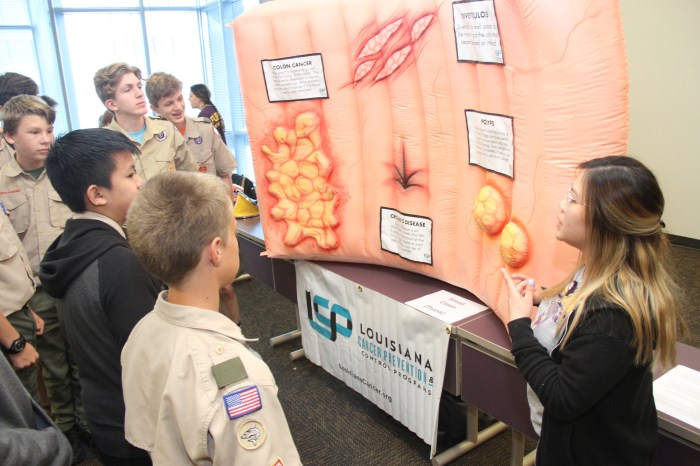
The Public Health Merit Badge program is designed to provide Boy Scouts with the knowledge and skills necessary to understand and promote public health in their communities. The program covers a wide range of topics, including disease prevention, environmental health, and health promotion.
The Public Health Merit Badge program was first introduced in 1911. It has since been revised several times to reflect changes in the field of public health. The current version of the program was released in 2019.
Purpose and Objectives
The purpose of the Public Health Merit Badge program is to help Boy Scouts develop the knowledge and skills necessary to:
- Understand the principles of public health
- Identify and assess public health risks
- Develop and implement public health interventions
- Evaluate the effectiveness of public health programs
- Promote public health in their communities
Requirements for Earning the Public Health Merit Badge
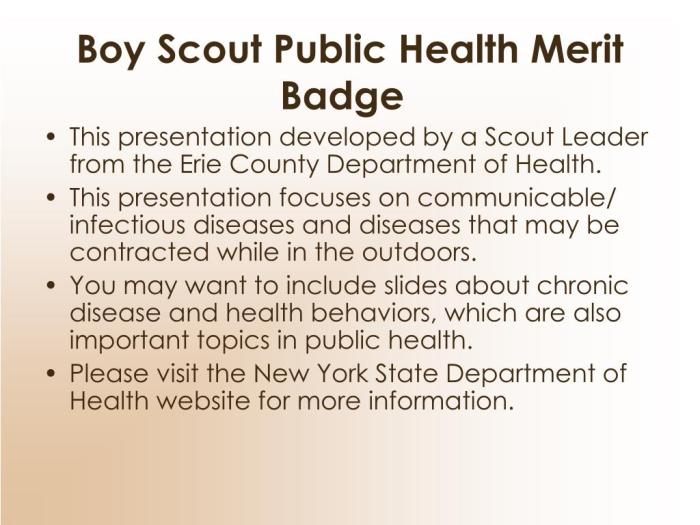
To earn the Public Health merit badge, Scouts must complete the following requirements:
- Define public health and explain the role of public health professionals.
- Identify the leading causes of death and illness in the United States and around the world.
- Describe the major public health issues facing the United States and around the world.
- Explain the role of the Centers for Disease Control and Prevention (CDC) and the World Health Organization (WHO).
- Describe the importance of clean water, sanitation, and hygiene.
- Explain the importance of immunization.
- Explain the importance of mental health.
- Explain the importance of environmental health.
- Describe the importance of disaster preparedness.
- Identify the resources available to help people improve their health.
- Develop a personal health plan.
li>Describe the importance of healthy eating and physical activity.
Through these requirements, Scouts will gain a comprehensive understanding of public health. They will learn about the leading causes of death and illness, the major public health issues facing the world, and the role of public health professionals. They will also learn about the importance of clean water, sanitation, hygiene, immunization, healthy eating, physical activity, mental health, environmental health, and disaster preparedness.
Finally, they will develop a personal health plan to help them improve their own health and the health of their community.
Sample Activities for Public Health Merit Badge
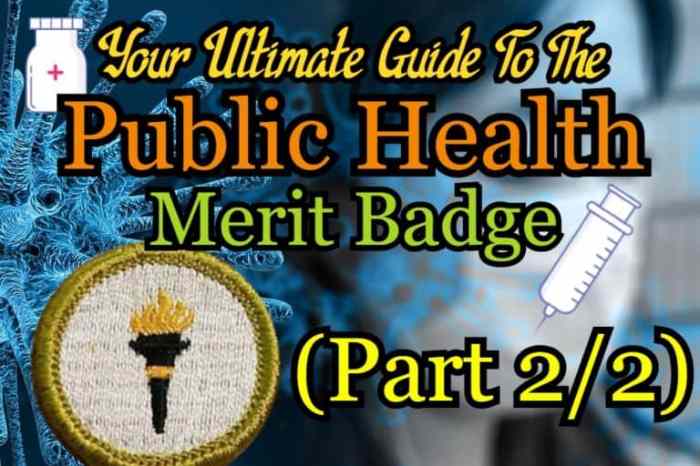
Engaging and educational activities can help Scouts fulfill the requirements for the Public Health Merit Badge. These activities can teach Scouts about the importance of public health, how to prevent and control diseases, and how to promote healthy behaviors.
Here are some sample activities that Scouts can participate in:
Interview a Public Health Professional
Interview a public health professional, such as a doctor, nurse, or health educator. Ask them about their work and how they help to protect and improve the health of the community. Find out what they like most and least about their job.
Discuss the educational background and experience required for a career in public health.
Visit a Local Health Department
Visit a local health department and learn about the services they provide. Talk to staff about the different programs and initiatives they have to promote public health. Find out how the health department works with other organizations in the community to address health issues.
Create a Public Health Campaign
Create a public health campaign to raise awareness about a specific health issue. The campaign can include posters, brochures, social media posts, or other materials. The goal of the campaign is to educate the public about the issue and encourage them to take steps to protect their health.
Volunteer at a Local Health Clinic
Volunteer at a local health clinic and help with tasks such as taking blood pressure, weighing patients, or providing health education. This is a great way to learn about the different aspects of public health and to make a difference in the community.
Research a Public Health Topic
Research a public health topic of your choice. This could include topics such as the history of public health, the role of public health in preventing and controlling diseases, or the impact of public health on the economy. Write a report on your research and present it to your troop.
Resources for Public Health Merit Badge
Scouts can delve deeper into the realm of public health by exploring a variety of resources that provide valuable insights and support.
These resources serve as indispensable tools, enabling Scouts to delve into specific topics, expand their understanding, and effectively complete the merit badge requirements.
Books
- Introduction to Public Healthby Michael J. Goodman and Theodore R. Holford: A comprehensive overview of public health principles, concepts, and practices.
- Public Health 101by Richard Hamburg: An accessible introduction to the field, covering key topics and current issues.
- Global Public Health: A Practitioner’s Guideby Richard Sullivan: Explores global health challenges and strategies for addressing them.
Websites
- Centers for Disease Control and Prevention (CDC): A wealth of information on public health topics, including disease prevention, health promotion, and emergency preparedness.
- World Health Organization (WHO): A global authority on public health, providing information on health trends, emergencies, and initiatives.
- National Public Health Association (NPHA): An organization dedicated to advancing public health practice, with resources on professional development and advocacy.
Organizations
- Local health departments: Offer opportunities for Scouts to engage with public health professionals and learn about local health initiatives.
- Non-profit organizations: Many organizations work in public health, providing opportunities for Scouts to volunteer and gain practical experience.
- Universities and colleges: Offer public health courses and programs, allowing Scouts to explore the field at an academic level.
Benefits of Earning the Public Health Merit Badge: Public Health Merit Badge Activities
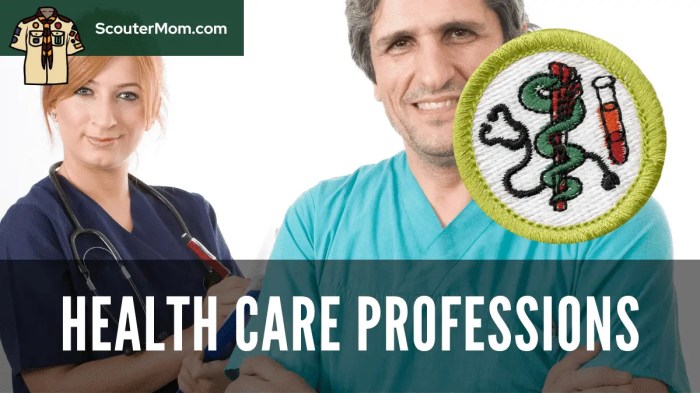
Earning the Public Health Merit Badge offers numerous advantages to Scouts, fostering their development in various aspects. It enhances their leadership skills, critical thinking abilities, and commitment to community service.
Leadership Development
Through the merit badge requirements, Scouts learn to lead by example. They actively participate in public health initiatives, taking on leadership roles in organizing events, conducting surveys, and educating their peers. This experience cultivates their ability to motivate, inspire, and effectively manage teams.
Critical Thinking Skills
The badge challenges Scouts to think critically about public health issues. They research health concerns, analyze data, and develop evidence-based solutions. This process strengthens their ability to identify problems, evaluate information, and make informed decisions.
Community Service Commitment
Earning the Public Health Merit Badge instills in Scouts a sense of responsibility towards their community. They engage in service projects that address local health needs, such as promoting healthy eating habits, reducing environmental risks, and providing health education to vulnerable populations.
This fosters their empathy, compassion, and commitment to making a positive impact on society.
Applications of Public Health in Everyday Life
Public health principles play a crucial role in safeguarding our health and well-being. These principles extend beyond healthcare facilities and encompass a wide range of everyday practices that contribute to healthier individuals and communities.
One prominent application of public health is in the realm of environmental health. Public health measures aim to control and prevent environmental hazards that pose risks to human health. These measures include regulating air and water quality, ensuring proper waste disposal, and implementing vector control programs to combat diseases spread by insects or rodents.
Health Promotion and Disease Prevention
- Public health campaigns promote healthy behaviors such as regular exercise, nutritious diets, and smoking cessation. These campaigns aim to reduce the risk of chronic diseases like heart disease, stroke, and cancer.
- Immunization programs protect individuals from vaccine-preventable diseases, safeguarding the health of entire communities by achieving herd immunity.
- Early detection and screening programs identify and address health issues at an early stage, improving treatment outcomes and reducing disease burden.
Surveillance and Outbreak Response
- Public health surveillance systems monitor disease patterns and trends, allowing for early detection and response to potential outbreaks.
- Rapid response teams are deployed to investigate and control outbreaks, preventing their spread and minimizing their impact on communities.
- Contact tracing identifies individuals who may have been exposed to an infectious disease, enabling prompt isolation and treatment to contain the outbreak.
Health Policy and Advocacy
- Public health professionals advocate for policies that promote health and well-being, such as tobacco control laws, healthy food initiatives, and increased access to healthcare.
- They collaborate with policymakers and community leaders to develop and implement effective health programs.
- Public health advocacy ensures that health concerns are considered in decision-making processes, leading to healthier communities.
Case Studies in Public Health
- Public health surveillance systems monitor disease patterns and trends, allowing for early detection and response to potential outbreaks.
- Rapid response teams are deployed to investigate and control outbreaks, preventing their spread and minimizing their impact on communities.
- Contact tracing identifies individuals who may have been exposed to an infectious disease, enabling prompt isolation and treatment to contain the outbreak.
Health Policy and Advocacy
- Public health professionals advocate for policies that promote health and well-being, such as tobacco control laws, healthy food initiatives, and increased access to healthcare.
- They collaborate with policymakers and community leaders to develop and implement effective health programs.
- Public health advocacy ensures that health concerns are considered in decision-making processes, leading to healthier communities.
Case Studies in Public Health
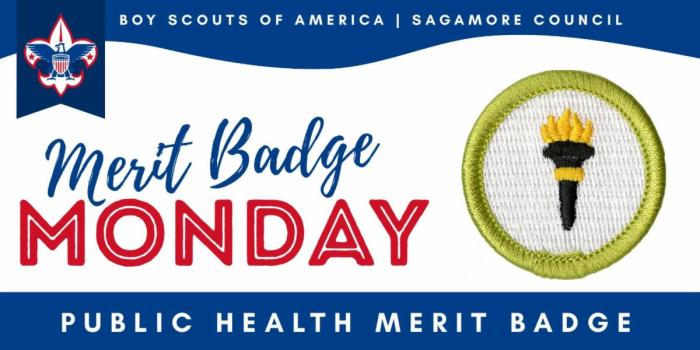
Case studies offer valuable insights into the effectiveness and challenges of public health interventions. They provide real-world examples of how public health measures can improve population health and well-being.
Analyzing case studies allows public health practitioners to identify best practices, evaluate the impact of different interventions, and make informed decisions about future public health initiatives.
Successes in Public Health Interventions
- Polio Eradication:The Global Polio Eradication Initiative has successfully reduced polio cases by over 99% worldwide. Mass vaccination campaigns, surveillance systems, and community engagement have been crucial to this success.
- Tobacco Control:Public health campaigns to reduce tobacco use have led to significant declines in smoking rates. Policies such as tobacco taxes, smoke-free laws, and public education have played a major role in this success.
Challenges in Public Health Interventions
- Antimicrobial Resistance:The overuse and misuse of antibiotics have contributed to the emergence of antimicrobial resistance, a major public health threat. Tackling this challenge requires collaboration between healthcare professionals, public health agencies, and the pharmaceutical industry.
- Health Disparities:Health outcomes often vary based on factors such as race, socioeconomic status, and geographic location. Public health interventions must address these disparities and ensure equitable access to health services.
Implications for Future Public Health Practice
Case studies provide valuable lessons for future public health practice. They highlight the importance of evidence-based decision-making, community engagement, and interdisciplinary collaboration. By analyzing successes and challenges, public health professionals can develop more effective interventions and improve population health outcomes.
Public Health Careers
The field of public health offers a wide range of career opportunities for individuals passionate about improving the health and well-being of communities.
These careers encompass various roles in research, policy development, program implementation, and health promotion. The educational and training requirements vary depending on the specific career path, but most positions require at least a bachelor’s degree in public health or a related field.
Education and Training, Public health merit badge activities
For entry-level positions in public health, a bachelor’s degree in public health, health science, or a related field is typically required. Some employers may also consider candidates with a bachelor’s degree in a non-health-related field combined with relevant work experience or coursework in public health.
For advanced positions in public health, such as those involving research or policy development, a master’s or doctoral degree in public health is often necessary. Specialized training in areas such as epidemiology, biostatistics, or health policy may also be required.
Career Advancement
Career advancement in public health is often based on a combination of education, experience, and leadership skills. Individuals with higher levels of education and specialized training typically have greater opportunities for promotion and leadership roles.
Continuing professional development through workshops, conferences, and online courses is essential for career advancement in public health. Staying up-to-date on the latest research and best practices in the field is crucial for effective performance and career growth.
Epilogue

Earning the Public Health Merit Badge not only demonstrates a Scout’s commitment to public health but also prepares them for future leadership roles in the field. The program provides a solid foundation for Scouts to make a positive impact on their communities and contribute to the health and well-being of society.
Essential FAQs
What are the requirements for earning the Public Health Merit Badge?
Scouts must complete a series of requirements related to public health topics, including disease prevention, health promotion, environmental health, and community health.
What types of activities can Scouts participate in to fulfill the requirements?
Activities may include conducting a health survey, developing a public health campaign, or volunteering at a local health organization.
What are the benefits of earning the Public Health Merit Badge?
Scouts gain knowledge and skills in public health, develop leadership abilities, and demonstrate their commitment to community service.




